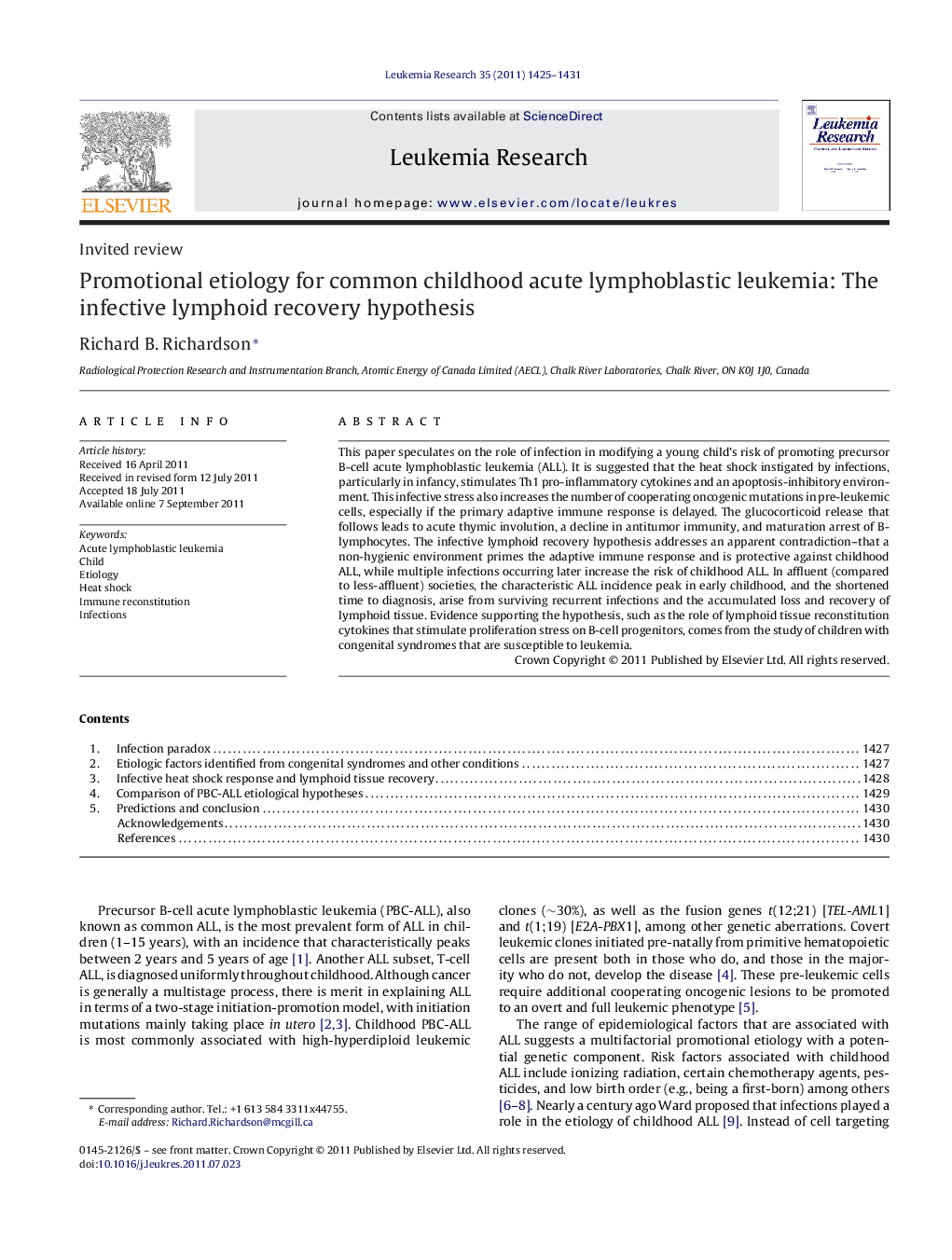| کد مقاله | کد نشریه | سال انتشار | مقاله انگلیسی | نسخه تمام متن |
|---|---|---|---|---|
| 10909372 | 1087855 | 2011 | 7 صفحه PDF | دانلود رایگان |
عنوان انگلیسی مقاله ISI
Promotional etiology for common childhood acute lymphoblastic leukemia: The infective lymphoid recovery hypothesis
دانلود مقاله + سفارش ترجمه
دانلود مقاله ISI انگلیسی
رایگان برای ایرانیان
کلمات کلیدی
موضوعات مرتبط
علوم زیستی و بیوفناوری
بیوشیمی، ژنتیک و زیست شناسی مولکولی
تحقیقات سرطان
پیش نمایش صفحه اول مقاله

چکیده انگلیسی
This paper speculates on the role of infection in modifying a young child's risk of promoting precursor B-cell acute lymphoblastic leukemia (ALL). It is suggested that the heat shock instigated by infections, particularly in infancy, stimulates Th1 pro-inflammatory cytokines and an apoptosis-inhibitory environment. This infective stress also increases the number of cooperating oncogenic mutations in pre-leukemic cells, especially if the primary adaptive immune response is delayed. The glucocorticoid release that follows leads to acute thymic involution, a decline in antitumor immunity, and maturation arrest of B-lymphocytes. The infective lymphoid recovery hypothesis addresses an apparent contradiction-that a non-hygienic environment primes the adaptive immune response and is protective against childhood ALL, while multiple infections occurring later increase the risk of childhood ALL. In affluent (compared to less-affluent) societies, the characteristic ALL incidence peak in early childhood, and the shortened time to diagnosis, arise from surviving recurrent infections and the accumulated loss and recovery of lymphoid tissue. Evidence supporting the hypothesis, such as the role of lymphoid tissue reconstitution cytokines that stimulate proliferation stress on B-cell progenitors, comes from the study of children with congenital syndromes that are susceptible to leukemia.
ناشر
Database: Elsevier - ScienceDirect (ساینس دایرکت)
Journal: Leukemia Research - Volume 35, Issue 11, November 2011, Pages 1425-1431
Journal: Leukemia Research - Volume 35, Issue 11, November 2011, Pages 1425-1431
نویسندگان
Richard B. Richardson,